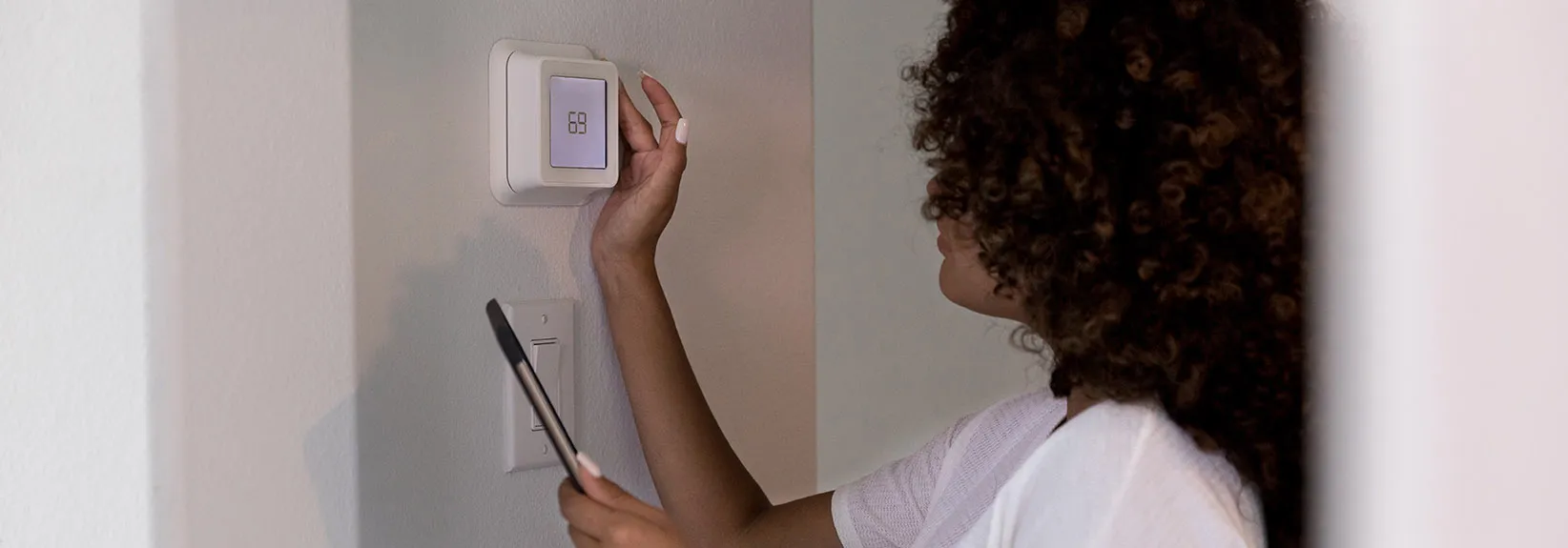Why Smart Thermostats Are Worth It
If you want a way to save money and energy in your home, it might be a wise investment to explore getting a smart thermostat. These devices can do everything from monitor when you leave the house, so that it doesn’t throw away electricity heating or cooling an empty home, to adjusting energy usage based on how many people are in a room or what time of day it is.
We’ll cover what a smart thermostat is, how it runs and why it’s worth it to purchase one. We’ll also talk about how it can help you save money on your energy bills by decreasing energy consumption.
What Is a Smart Thermostat?
A smart thermostat is an automated device that allows you to do it all from adjusting your heating and cooling settings for various times of day, to tracking when people are in the house, so it isn’t wasting energy by heating or cooling an empty home. Most smart thermostats have learning capabilities, which means they pay attention to how you adjust your settings and make automatic adjustments over time based on what they learn from you. A smart thermostat connects to Wi-Fi, so you’ll be able to change and monitor your energy usage from just about anyplace.How Do Smart Thermostats Work?
A smart thermostat has learning algorithms and can connect with other smart home technology, such as Google Home, Amazon Alexa and Apple HomeKit, for even better control over your comfort. They’re compatible with most systems, such as home heating and air conditioning. Smart thermostat features consist of a temperature sensor that can detect when the home is vacant, and then automatically change to an energy-efficient setting. Your smart thermostat may be able to geofence with your phone to know when you’re at home or away. A smart thermostat does tasks like adapt more for rooms that are full or have more people in them, as well as monitor what time of day it is so it knows how much heating or air conditioning should be used.Are Smart Thermostats Worth It?
For many people, the answer is yes. If you do a lot of travel or are gone for long hours during the day, it may be worth your money to get one of these thermostats. You could save a lot, especially if you forget to change it when you leave for the office or go out of town for the weekend. You won’t have to worry about whether your smart thermostat is on the appropriate program, or if you remembered to adjust the temperature setting before you went out. It doesn’t require much effort from you, but you’ll see it in lower energy bills.Smart Thermostats vs. Programmable Thermostats
Most homeowners have a traditional programmable thermostat, but 40% of them aren’t set correctly. This means you could be missing chances to save on heating and cooling costs. Smart thermostats are handy because they learn your schedule and automate heating and cooling that corresponds. You can set a similar schedule on a programmable thermostat. But it’s more effort to program your thermostat manually. A smart thermostat conveniently adjusts and progressively changes the temperature inside your home for the biggest energy savings. If you manually change a programmable thermostat, you can overburden your HVAC system and make it work harder to meet your changes.Do Smart Thermostats Save Energy?
Yes, since your smart thermostat will learn from your temperature preferences and day-to-day activities to make a schedule that reduces heating and cooling costs. You don’t have to do much as your thermostat does all the work for you while conserving money. You can acquire identical energy savings with a programmable thermostat, but it’s going to require a little bit more work than a smart thermostat. To put together a schedule on programmable models, we suggest following these guidelines from ENERGY STAR® to save energy.Recommended Temperature Settings for Your Heating System
-
- Wake: Below 70 degrees.
-
- Day: Set back at least 8 degrees, if no one is home.
-
- Evening: Higher than 70 degrees.
-
- Sleep: Set back at least 8 degrees.
Recommended Temperature Settings for Your Cooling System
-
- Wake: Greater than 78 degrees.
-
- Day: Set up at least 7 degrees, if no one is there.
-
- Evening: Lower than 78 degrees.
-
- Sleep: Increase at least 4 degrees.
Do Smart Thermostats Save Money
Nest, one of the most popular smart thermostat manufacturers, says its smart thermostat saves U.S. homeowners about:-
- 10-12% on your heating bill
-
- 15% on your cooling bill
-
- $131 to $145 on your energy bill annually



